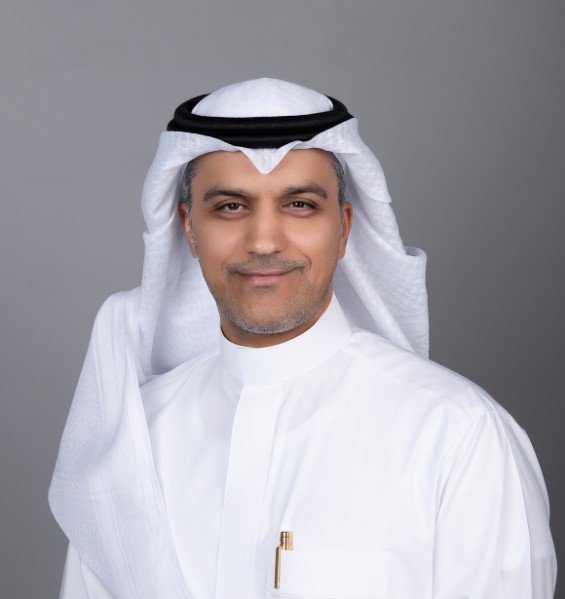The pursuit of excellence in government strategy and performance management

Raed Abdullah Alsuhaibani, General Manager of Strategic Performance Management at the Ministry of Human Resource and Social Development (MHRSD) in Saudi Arabia, draws on his 17 years of experience in both the private and public sectors, with some of these years dedicated to navigating the ever-shifting currents of strategy and performance management within government. He describes himself as an ambitious and results-oriented individual with a track record in strategy execution, performance management, and business support.
In this interview with Performance Magazine, Alsuhaibani shares his insights and experiences in the public sector, where he steers the ship of strategy execution and alignment in accordance with Saudi Vision 2030.
Would you tell us more about your educational and professional background? How did your previous experiences lead you to your current position?
I am an Industrial Engineer with a bachelor’s degree from King Saud University and a master’s degree in Business Administration from Eastern Michigan University, United States. Working in the private sector, especially in one of the model environments, Advanced Electronics Company (now Saudi Arabian Military Industries or SAMI), and two other major companies, namely AlRajhi Bank and Saudi Arabia’s Basic Industries Corporation (SABIC), allowed me to explore and discover many business aspects that enhanced my skills and experience. In 2021, I decided it was time to utilize my experiences and participate in achieving our ambitious Vision 2030 through my current position.
What are your main responsibilities and goals in your current role?
My current responsibilities involve overseeing the execution of the ministry’s strategies, with the primary goal of maximizing the kingdom’s economic and societal value through alignment and synergy.
Please take us through your daily job routine. Could you describe in detail your activities and work hours? You may specify certain areas of your job, such as your work arrangement (remote, on-site, or hybrid) and the stakeholders you frequently contact or meet with.
My daily job routine consists of measuring and managing the performance of our strategy execution and working on alignment with all stakeholders. Being responsible for performance management, we commonly work on enhancing measures and solving data-related issues. Working in a large organization like the MHRSD allows one to align and work with a large community of stakeholders within and outside of the ministry. Thus, this takes a big chunk of the time.
Do you think that strategy and performance management in the public sector is different from that in the private sector? How so?
One key distinction between strategy and performance management in these sectors lies in their expected outcomes. The private sector is primarily driven by maximizing shareholder value, typically marked by measuring profit or return on investment (ROI). On the other hand, the public sector places a greater emphasis on working with a diverse range of stakeholders, i.e. the general public as well as companies in the private sector. However, if we talk about adopting methodologies and frameworks to manage performance, I see that the gap is minimal. I was amazed by the significant transformation in the public sector when I joined first in 2021. So, I believe that in some public organizations, the practices are generally more mature than in private ones.
What are the main achievements you are proud of thus far during your time working in strategy and performance management in the public sector?
I have had the privilege of collaborating with amazing teams that possess diverse skill sets at different levels. This collaboration has been instrumental in achieving our goals. Some of our main accomplishments include establishing effective strategy and performance management practices within the MHRSD, playing a facilitative role in developing various subsidiary strategies while offering technical expertise, and garnering top national awards for excellence in strategy, performance, and project management office (PMO) practices.
What are the main challenges that you face working in strategy and performance management in the public sector? How do you overcome such challenges?
I believe that alignment and getting all stakeholders on the same page is challenging, especially in the public sector. Obtaining buy-in from businesses can also be challenging, especially in the context of performance. To overcome those challenges, I think improving communication is essential and focusing on delivering the right message at the right time.
For the future of your career, do you intend to keep on working in the public sector, switch to the private sector, or does the sector not really matter to you? Why?
Given the rapid, significant changes happening in the public sector as part of Vision 2030, I think that working in the public sector is much better. Being a part of these remarkable and historic changes is a great opportunity. There will be a better chance for a person to shine and make a difference.
If someone is looking to work in strategy and performance management in the public sector one day, what skills, knowledge and experience would you advise them to acquire?
Any person who wants to work in strategy and performance management in the public sector should focus on communication skills, problem-solving abilities, and persistence.
Learn more about Alsuhaibani’s perspectives on strategy and performance management in the forthcoming government-themed issue of Performance Magazine – Print Edition. Stay updated by subscribing to TKI’s LinkedIn page!

